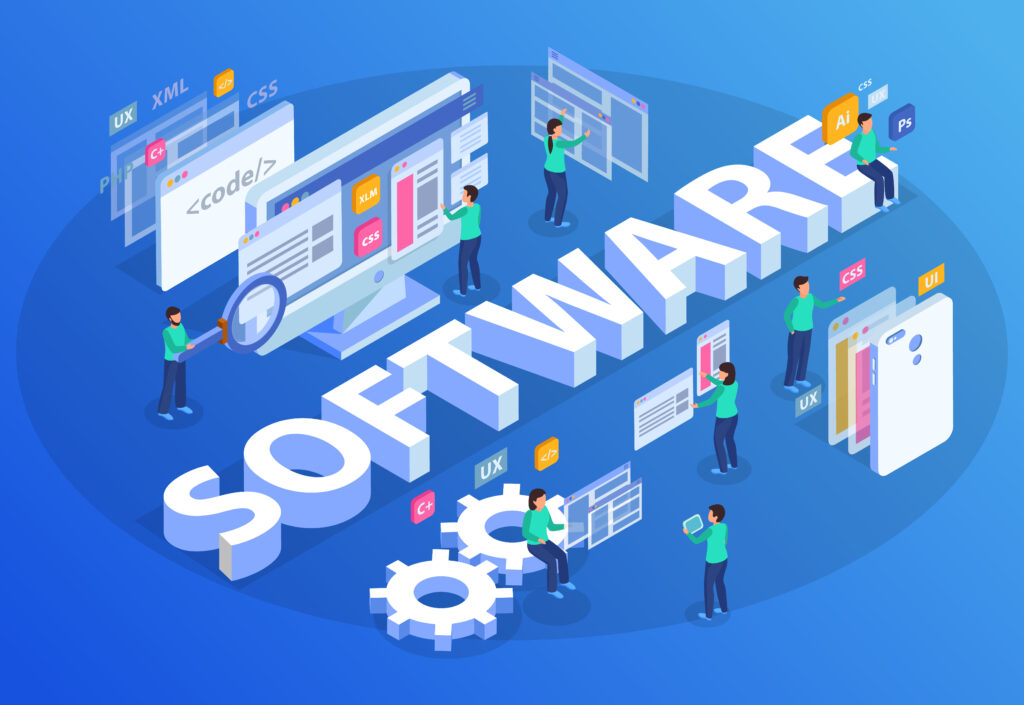The Importance of Custom Software Development Services
For companies looking for focused solutions which deal specifically with their needs and objectives, custom software development services are important. Performance-wise, custom solutions function far more advanced than the existing vanilla solutions as they are created to fit the company processes. Through custom software development, organizations are able to make better decisions implement better experiences for their customers and remain competitive.

Furthermore, less expensive of the costly refactoring and integrations in the future will allow to these services. Custom Software Development allows for the integration of a solution into the business that fits fully and works as it is expected.
Key Elements of Custom Software Development Services

1: Requirement Analysis
- Identifying Business Needs: The development process starts with a thorough analysis of the business’s needs, challenges, and objectives. Understanding the company’s operations, target market, and pain points ensures that the custom software is designed to effectively address business issues.
- Engaging Stakeholders: Developers collaborate closely with stakeholders to gather detailed functional and non-functional requirements. This will ensure that the software meets their expectations and supports their long-term goals.
- Evaluating Technical Feasibility: This step involves assessing the technical feasibility of the solution, including selecting suitable technologies, estimating resource requirements, and ensuring the software’s scalability and integration capabilities.
2. Design and Prototyping
- UI/UX Design: Custom software development services place a strong emphasis on crafting user interfaces and experiences (UI/UX) that are intuitive and tailored to the target audience. This ensures the software is both functional and user-friendly.
- Wireframing and Prototyping: Developers often create wireframes or prototypes to outline the software’s structure and layout. These visual drafts offer stakeholders an early look at the product, enabling them to provide feedback before moving further into development.
3. Technology Stack Selection
- Selecting the Right Tools: A technology stack, including programming languages, frameworks, databases, and tools, is chosen based on the project’s specific needs. This selection ensures the custom software meets the desired functionality, performance, scalability, and security requirements.
- Embracing Emerging Technologies: Custom software can also integrate advanced technologies such as Artificial Intelligence (AI), Machine Learning (ML), Blockchain, and the Internet of Things (IoT), depending on the business’s needs.
4. Development Methodologies
- Agile Development: Many custom software projects follow Agile methodologies, like Scrum or Kanban, which encourage iterative development, frequent client feedback, and adaptability, allowing changes to be made throughout the development process.
- Waterfall Model: In some cases, we use the traditional Waterfall approach, where the project progresses through defined stages like design, development, testing, and deployment. Each stage is completed in a sequential manner.
5. Custom Software Development Phases
- Front-End Development: This phase focuses on creating the user interface (UI) and user experience (UX), ensuring responsive and visually appealing designs that work smoothly across devices such as desktops, mobiles, and tablets.
- Back-End Development: Here, developers build the server-side logic, databases, and APIs that power the software behind the scenes, prioritizing scalability, security, and the efficient execution of business processes.
- Database Design: Custom software relies on well-designed databases to store, retrieve, and manipulate data. Developers focus on ensuring fast access, scalability, and data integrity.
-
API and Third-Party Integration: Integrate the custom software with existing systems (such as ERP or CRM) to improve communication and functionality. Connect third-party platforms, like payment gateways and analytics tools, to further enhance system capabilities.
6. Testing and Quality Assurance
- Functional Testing: Once development is complete, thorough testing is subsequently performed to verify that all features operate as expected. This process includes unit testing, integration testing, and system testing.
- Performance Testing: Next, the software is tested under various load conditions to ensure it can handle an increase in users or data volumes without compromising performance.
- Security Testing: Given the rise in cyber threats, security testing is a critical step to ensure the software is well-protected against attacks, data breaches, and vulnerabilities.
-
7. Deployment and Implementation
- Seamless Transition: After the successful testing, the next step is to deploy the software to the production environment with minimal disruption to business operations.
-
Cloud or On-Premise Deployment: We deploy the software on cloud platforms, like AWS, Azure, or Google Cloud, based on the client’s needs and infrastructure. If preferred, we also install the software on the company’s on-premise servers.
-
8. Maintenance and Support
- Continuous Maintenance: After deployment, the custom software will require routine updates to address bugs, enhance performance, and ensure compatibility with evolving technologies.
- Feature Upgrades: As the business expands, new features or improvements may then be necessary. Developers will continuously update the software in response to shifting business needs and user feedback.
- Monitoring and Optimization: Additionally, the software’s performance, security, and efficiency are consistently monitored to maintain peak performance.
Types of Custom Software Development Services

Web Application Development
Developing web-based solutions accessible via browsers, ranging from simple websites to complex applications like content management systems (CMS), e-commerce platforms, or customer portals.
Mobile Application Development
Creating native or cross-platform mobile apps (iOS, Android, or hybrid) that cater to a business’s specific needs. Custom mobile apps enable businesses to engage customers, employees, or partners through mobile devices.
Enterprise Software Development
Building large-scale software solutions to manage internal operations, such as enterprise resource planning (ERP), supply chain management, human resources (HR), and customer relationship management (CRM).
SaaS (Software as a Service) Development
Developing cloud-based software solutions offered as a service to multiple users. SaaS applications often offer subscription-based models and help businesses scale services for different clients or users.
E-Commerce Solutions
Crafting custom e-commerce platforms to handle online transactions, inventory management, CRM, and order processing. These platforms can meet the unique needs of online retailers.
Database Management Solutions
Designing custom databases to handle data storage, retrieval, and manipulation. This will ensure efficient data management and reporting specific to a business’s requirements.
Integration and API Development
Creating APIs for seamless integration between different systems, allowing organizations to automate workflows, share data, and enhance operational efficiency.
Benefits of Custom Software Development Services

Personalization and Control:
Businesses have complete control over the software’s features, functionality, and design, ensuring it meets their exact requirements.
Scalability:
Custom software can expand alongside the business, enabling the addition of new features and functionalities as needs change.
Competitive Edge:
By offering unique capabilities not available in off-the-shelf products, custom software provides businesses with a distinct competitive advantage.
Security and Compliance:
Long-Term Cost Efficiency:
Custom software may involve higher initial development costs. However, it avoids ongoing licensing fees and can offer a greater return on investment over time.
Challenges of Custom Software Development Services
Cost:
Custom software often involves a substantial initial investment, covering development, testing, and deployment expenses.
Time-Consuming:
Creating a custom solution from the ground up can take several months or even years, depending on the project’s complexity.
Maintenance and Updates:
You need ongoing maintenance, support, and updates to keep the software functional, which can raise the total cost of ownership.
Risk of Failure:
Poor management of the development process—due to inadequate planning, communication, or execution—can result in project failure. This will lead to delays and budget overruns.
[Want to learn more about custom software development services? Click here to reach us.]
Conclusion
In conclusion, custom software development provides businesses with the advantage of creating solutions tailored specifically to their unique needs and challenges. While the initial investment and development time may be considerable, the benefits of customization, scalability, competitive edge, and long-term cost efficiency often justify these factors. By opting for custom software, organizations gain full control over features, enhance security and compliance, and position themselves to evolve with changing business demands.
At Bobcares, we specialize in delivering bespoke software solutions that cater to your specific requirements. Our expertise ensures that you receive a custom software product designed to enhance efficiency, drive innovation, and support your business objectives. With Bobcares, you can confidently navigate the complexities of custom software development and achieve a solution that truly aligns with your vision and goals.







0 Comments